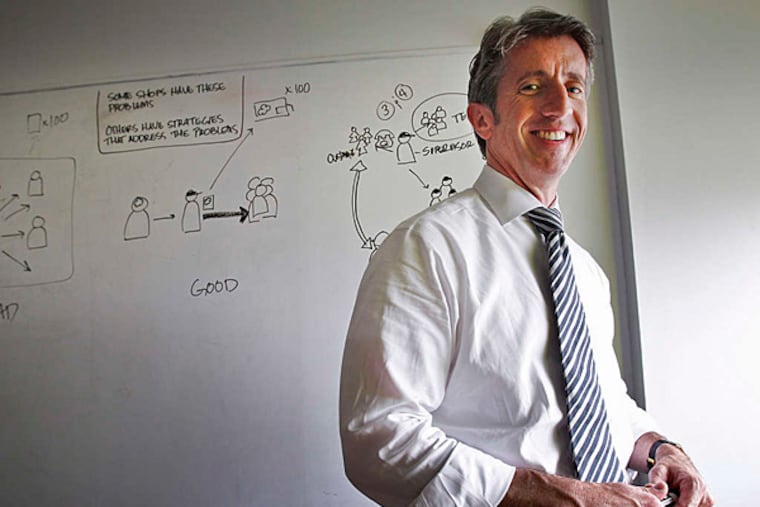Consulting firm uses behavioral scientists to help companies
Electronic Ink says understanding how employees perform their jobs is key to driving innovation.

HAROLD HAMBROSE, 46, of West Mount Airy, is chief executive of Electronic Ink, a business-consulting firm he founded in 1990 that's based on South Broad Street across from City Hall. Hambrose - who summed up his philosophy in a 2009 book, Wrench in the System - says the company makes it easier for people to use computer systems and helps clients better understand how their employees work.
Q: How'd you come up with the idea for Electronic Ink?
A: It started because software developers were just creating tools to make computers more functional, and I felt designers should be involved.
Q: How has the biz evolved?
A: We were there when ATMs arrived and made computer screens easier to use. Clients gave us information and we learned a lot beyond technology.
Q: Why is it important for companies to understand how employees work?
A: The old model was that software drove innovation, and innovation meant efficiency and quality. Now, understanding employees and customers drives innovation. So 20 of our people are behavioral scientists who spend their time inside big companies helping them understand not just what people are doing, but why they're doing it or not doing it.
Q: How big a business is this?
A: We expect to do $20 million in sales and we have 85 employees.
Q: Who are some clients?
A: We do a lot of work for Penske, Morgan Stanley, HSBC and Elsevier, a medical publisher. Comcast is a big client - we do a lot of work with their call centers. Q: Who are your competitors?
A: We compete with consulting firms like Accenture and Deloitte. They typically focus on the transactional side of business: You go into a conference room and describe how things get done in the abstract. Stick a behavioral scientist in the workplace, and you get a different set of data.
Q: Is this model unique?
A: We are probably one of a handful of companies doing this. We once asked a client what was the biggest disappointment with our work. They said it wasn't disappointment but surprise: "We got so much data, we didn't expect to learn so much about our business and didn't know what to do with it." That said more value is being delivered and potentially more revenue for us.
Q: Where do you see Electronic Ink in five years?
A: We'll grow business consulting. The more complex, the better. Managing energy grids is an example of where we can help.
Q: How so?
A: An individual is making decisions about monitoring and assigning power flows among hundreds of generating plants. Our job is to figure out how he can perform better, and perhaps show how more folks than one guy with 25 years sitting at a desk can do the job just as effectively.
Online: ph.ly/YourBusiness